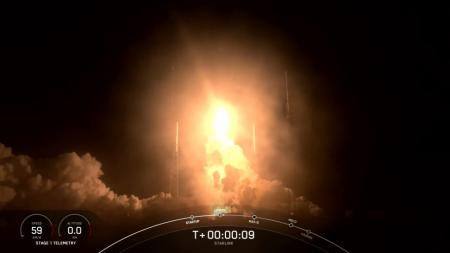
I know most of us are looking at Starlink as some kind of saviour. We have been disappointed enough by the current internet service providers in this country that we cling to any hope of a new player entering the fray.
When Starlink said they were coming to Zimbabwe this calendar year, the excitement reached fever pitch. We still don’t know what the regulator has to say about all this but that hasn’t stopped us from saving up for Starlink kits.
This hope of ours might be in jeopardy though if astronomers would have their way. These scientists are calling on us to join them in calling for the ban of satellite groups like the one that Sarlink has. They say these satellites are causing light pollution.
Light pollution? Seriously? My Zimbabwe, are you cursed or something? Just the whiff of something good coming your way and the forces combine to snatch it away from you, and from the whole world too. Maybe the likes of Liquid and Econet have been pulling in all-nighters on some mountaintop and this is their answer.
Light pollution
Scientists say “light pollution, produced both at Earth’s surface and from low Earth orbit (LEO) satellites, is rapidly increasing.” This might not feel like a big deal but the science is clear, artificial light at nighttime is bad for humans, animals and the environment.
Low Earth orbit satellites like Starlink’s don’t produce enough light to directly cause things like sleep deprivation in humans. However, scientists say we just aren’t sure of the extent of the effect they are having on wildlife and the environment.
Astronomy
It’s not the main talking point for scientists though. What can’t be argued is how low Earth orbit satellites are negatively impacting scientists’ ability to study the skies. That is the crux of the matter.
I have to be honest with you, I don’t want to connect to these warnings. I know that astronomy has contributed much to our knowledge of the universe and in turn, led to some technological advancements in optics and electronics.
The computers and smartphones we want to connect to Starlink internet have astronomy to thank for their existence.
However, given the choice to connect to unlimited Starlink internet at $110 for real-world speeds of over 50Mbps, I would sacrifice some of the advancements that could be harder to achieve with light pollution going unchecked.
The reason I’m not moved is that light pollution does not mean we can’t study the skies at all. It just makes it much more difficult and expensive. Well, where there is a way, we will find the funds.
I am not moved by the other danger that light pollution poses – that of making it hard to detect ‘near-Earth objects that represent a high risk of colliding with our planet.’ It is a real risk but I’m willing to wing it, it’s not like there is much we can do about that in my misguided opinion.
The call to ban
I joke around but these are real concerns that the scientists have raised. So serious it is that the scientists say there should be a limit on the number of low Earth orbit satellites allowed and that we have already exceeded that limit. So, the scientists propose a ban,
On the scales of immediate or long-term benefits and harm to society, and despite the popularity of satellite megaconstellations, we must not reject the possibility of banning them. On the contrary, we believe that the impacts and risks are too high for this possibility to be ruled out
You can read one of the articles published in Nature by these astronomers here: A call for scientists to halt the spoiling of the night sky with artificial light and satellites
The scientists concede that it’s going to be hard for them to win this fight. Most of us laypeople just don’t think light pollution is a big problem.
That’s especially the case because whatever danger it poses is not immediate. Yet, the benefits that come attached to that light pollution include fast and affordable internet.
Companies like Starlink are also good at making us doubt the ‘seriousness’ of such scientific warnings.
So, Starlink’s future might not be in danger after all. Unless the anti-Elon Musk sentiment which permeates some internet circles proves to be strong.
What do you think about all this? Would you support a ban on new low Earth orbit satellites hitting the skies? Would you go a step further and call for the decommissioning of current satellites? Even if it meant no Starlink for you in the future? Let us know in the comments section below.
Also read:
Starlink introduces Global Roaming which means you can technically use it in Zimbabwe now
We asked POTRAZ about Starlink. Here is everything we know about it coming to Zimbabwe.
